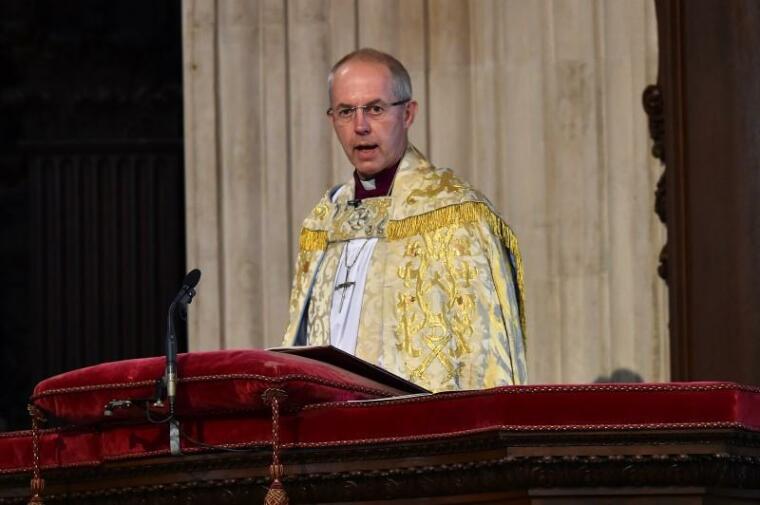Pressure to reach church growth targets can lead to 'clergy self-harm,' Oxford dean warns

The Dean of Christ Church in Oxford has pleaded with bishops to stop acting like CEO's who are chasing growth targets as the practice can lead to "clergy self-harm."
Professor Martyn Percy, who also teaches in the theology faculty, warned that the Church of England, under Archbishop Justin Welby, has become increasingly corporate and too focused on growth.
"The church has become too organisational and bureaucratic," he told the audience at the charity Sons & Friends of the Clergy, as reported by The Telegraph.
"Sharp missional evangelistic thinking has created a culture where clergy feel like employees, chasing targets - and they feel guilty when they don't achieve those targets, or when they can no longer relate to what has become an organisation," he added.
Percy contended that Welby's business-like "renewal and reform" approach is detrimental to the clergy's duty and wellbeing.
In an attempt to stem the rapid decline in church attendance, Welby, a former oil executive, has been pursuing an approach that includes courses for bishops to learn managerial skills.
Percy said that instead of chasing growth targets, clergy should understand that the two key symbols that a bishop holds are a "chair (to teach) and a pastoral staff (a symbol of care)."
"Bishops need to be good teachers and great carers, not great leaders or CEOs or managers of organisations. We can get that from good lay leaders and diocesan secretaries," the dean asserted.
The Church had launched a new "covenant" last week with the aim of preserving clergy mental health following reports that they were struggling to cope with stress that is "fuelled by anxiety about growth and organisation and professionalism."
Jeremy Moodey, chief executive of Sons & Friends of the Clergy, said that mental health problems among vicars are increasing, with 30 percent of Anglican clergy suffering from depression since their ordination. Additionally, more than 40 percent had at some stage thought about leaving the ministry due to stress.
In response to the crisis, the 362-year old charity, which works to support clergy and improve their wellbeing, has agreed to change its objectives to include "the promotion of health" among Anglican clergy and their families.
Despite Welby's efforts to get people to attend services, the church is still struggling to fill the pews. A recent report had indicated that the number of British people identifying as Christian fell from 55 percent to 43 percent between 1983 and 2015.
In contrast, data from the British Social Attitudes Survey indicated that the total number of unbelievers in the U.K. has reached a record high, with 53 percent of the population describing themselves as having "no religion" in 2016 — up from 48 percent in 2015.
 Christians don't have to affirm transgenderism, but they can’t express that view at work: tribunal
Christians don't have to affirm transgenderism, but they can’t express that view at work: tribunal Archaeology discovery: Medieval Christian prayer beads found on Holy Island
Archaeology discovery: Medieval Christian prayer beads found on Holy Island Presbyterian Church in America votes to leave National Association of Evangelicals
Presbyterian Church in America votes to leave National Association of Evangelicals Over 50 killed in 'vile and satanic' attack at Nigerian church on Pentecost Sunday
Over 50 killed in 'vile and satanic' attack at Nigerian church on Pentecost Sunday Ukrainian Orthodox Church severs ties with Moscow over Patriarch Kirill's support for Putin's war
Ukrainian Orthodox Church severs ties with Moscow over Patriarch Kirill's support for Putin's war Islamic State kills 20 Nigerian Christians as revenge for US airstrike
Islamic State kills 20 Nigerian Christians as revenge for US airstrike Man who served 33 years in prison for murder leads inmates to Christ
Man who served 33 years in prison for murder leads inmates to Christ


 Nigerian student beaten to death, body burned over ‘blasphemous’ WhatsApp message
Nigerian student beaten to death, body burned over ‘blasphemous’ WhatsApp message 'A new low': World reacts after Hong Kong arrests 90-year-old Cardinal Joseph Zen
'A new low': World reacts after Hong Kong arrests 90-year-old Cardinal Joseph Zen Iran sentences Christian man to 10 years in prison for hosting house church worship gathering
Iran sentences Christian man to 10 years in prison for hosting house church worship gathering French Guyana: Pastor shot dead, church set on fire after meeting delegation of Evangelicals
French Guyana: Pastor shot dead, church set on fire after meeting delegation of Evangelicals ‘Talking Jesus’ report finds only 6% of UK adults identify as practicing Christians
‘Talking Jesus’ report finds only 6% of UK adults identify as practicing Christians Mission Eurasia ministry center blown up in Ukraine, hundreds of Bibles destroyed: 'God will provide'
Mission Eurasia ministry center blown up in Ukraine, hundreds of Bibles destroyed: 'God will provide' Church holds service for first time after ISIS desecrated it 8 years ago
Church holds service for first time after ISIS desecrated it 8 years ago Burger King apologizes for 'offensive campaign' using Jesus' words at the Last Supper
Burger King apologizes for 'offensive campaign' using Jesus' words at the Last Supper Uganda: Muslims abduct teacher, burn him inside mosque for praying in Christ’s name
Uganda: Muslims abduct teacher, burn him inside mosque for praying in Christ’s name